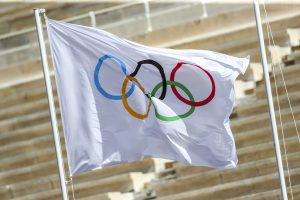In a poll released one week before the commencement of the postponed Tokyo Olympics, only 22 percent of Japanese supported Prime Minister Suga Yoshihide’s decision to go ahead with the Games. Across 28 countries surveyed, only 57 percent of respondents agreed with the Japanese leader.
In the lead-up to the Opening Ceremony on July 23, many panned holding the Games as irresponsible and even dangerous. A common view was that it was better to hunker down until the pandemic passes, even if it takes months or even years before we can safely emerge again.
With just days to go before the Closing Ceremony, the naysayers are much quieter. Many will have even changed their minds. The decision to go on with the Olympics was a brave one. It was also a sensible decision and a necessary tonic for a world beginning to see the light at the end of the tunnel during this panic.
It is notable that despite earlier misgivings, the Japanese population has embraced the Games if viewership and interest is anything to go by. The Opening Ceremony was viewed by more than 70 million people, which made it the most watched event in at least a decade. Audiences are down in the United States and Europe from previous Games, largely due to inconvenient time zones for these nations. But in regional markets such as Australia, where time zones are more favorable, viewership was up 50 percent from the previous Olympics in Rio.
Australia is a notable case study when it comes to the psychological impacts of the current pandemic. The country’s international borders have been closed since March last year and those seeking to come in or fly out require exemptions which are difficult to receive. Currently in Sydney, which is in the middle of a strict lockdown that began in late June and will continue into September, it is obvious watching the Olympics is one way for Australians to feel more connected to the outside world and the life that we all once knew.
Watching the interaction of athletes from many nations competing in the one place is a soothing reminder of what the world was like before the pandemic and what it can be like when we learn to live with COVID-19.
This provides a further context for why it was a sensible decision to go on with the Games even putting aside the lift in spirit that it gives to many in Japan and around the world. There was understandable anxiety, especially with the emergence of the more infections Delta variant circulating around the world. This led to the necessarily strict protocols in place, which largely isolate Olympic participants from contact with broader Japanese society. These have been largely successful in that there have been only around 276 positive cases, including 24 athletes, among more than 11,000 participants.
But it is the effectiveness of vaccines and vaccination that provides the broader justification for holding the Olympics. Using ourworldindata.com information, the number of deaths in Japan has declined dramatically from the peaks in the first half of the year to the relatively low levels seen from the start of the pandemic to November 2020. Remember that this was the period when Japan was one of the handful of countries lauded (along with South Korea, Taiwan, Vietnam, Singapore, Australia, and New Zealand) for keeping the terrifying impact of COVID-19 at bay.
Hospitalization and death rates have been kept low despite high case numbers. Much of this can be attributed to the fact that about 90 million vaccine doses have been administered with about 1 million jabs each day. None of this is to suggest that Japanese and international Olympic officials should be complacent. The point is the decision to proceed with the Olympics was not only brave but thought out and well executed from a COVID-19 perspective. As a geopolitical aside, it is also indication that liberal democracies can get their act together if there is the will to do so in these unusual times. This is despite accusations democracies are inherently chaotic and dysfunctional in a time of crisis.
There is a greater significance at stake. Lockdowns and restrictions on human movement and interaction are unnatural and unhealthy for those in open societies. The longer these go on, the greater the long-term economic and social price of the pandemic.
We cannot yet simply treat COVID-19 as if it were no more menacing than the seasonal flu. But it is becoming less about preventing infection and more about being confident we can live with COVID-19 and still prevent hospitalizations and deaths. Not for the first time, the Olympic Games is about more than just sport. This one in Tokyo gives us greater confidence that we are charting our way toward a post-COVID-19 normal, and that new normal is within sight.

































